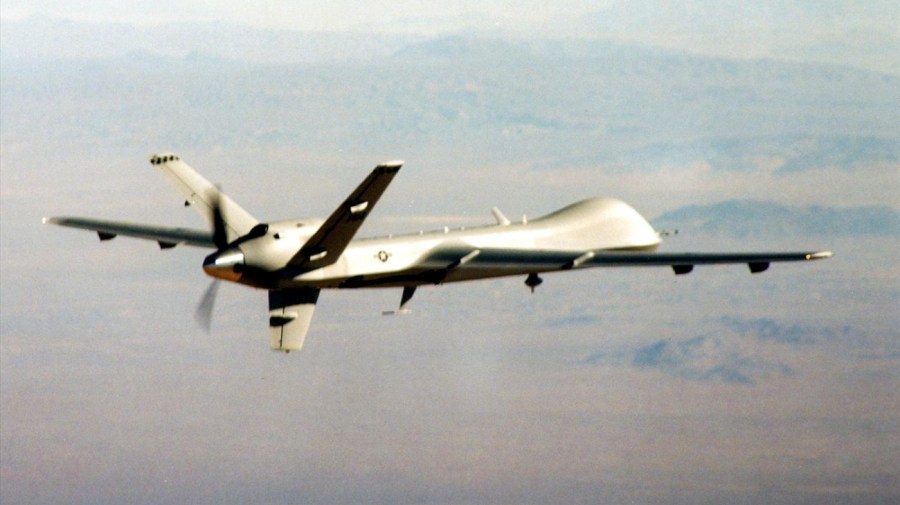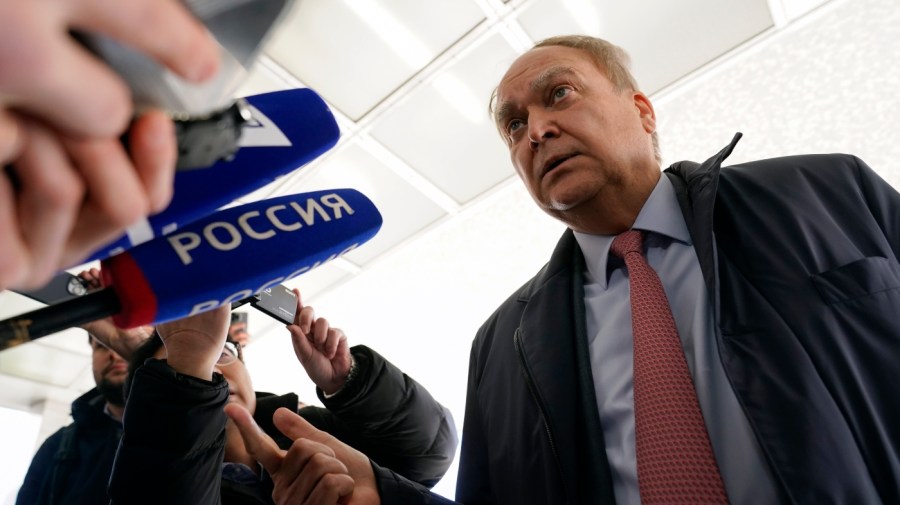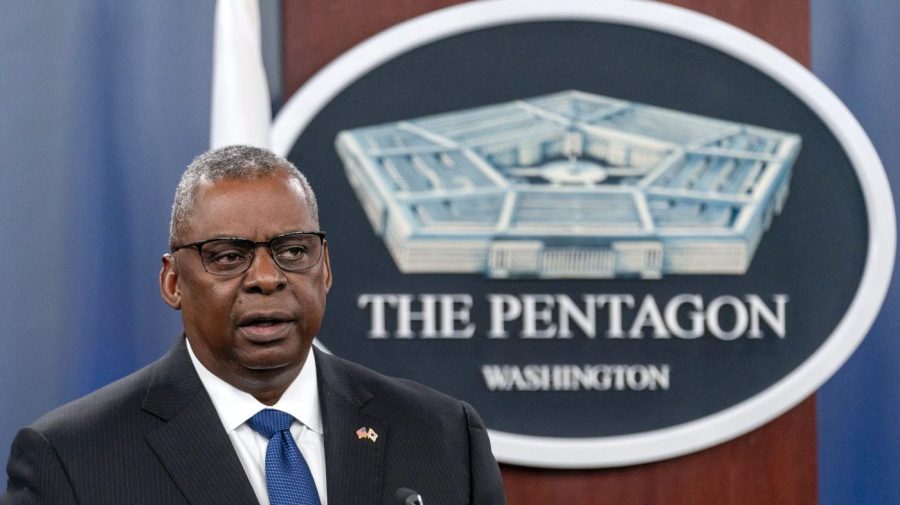Five key takeaways from the Russian jet-US drone incident
Two Russian jets sparked the latest diplomatic crisis between Moscow and Washington on Tuesday when they forced down an unmanned American aircraft into the Black Sea.
The White House blasted the incident as unsafe and reckless, while Russia has downplayed the event, even accusing the U.S. of provocative drone flights approaching Russian territory.
Charles Kupchan, a senior fellow with the Council on Foreign Relations, called it an “extraordinary” and worrying clash between Russia and the Western security alliance NATO.
“Whatever the intent of the Russians, this is a very dangerous situation,” he said. “On a daily basis we have Russian weapons and aircraft and personnel in close proximity to NATO territory, NATO personnel, NATO platforms. And so the risk of escalation is significant.”
Here are five key takeaways from the downed drone.
Airspace interceptions aren’t new, but this was rare

US Air Force MQ-9 “Reaper” drone aircraft in flight (USAF via Associated Press)
The U.S. intercepts Russian fighter jets several times a year in the Air Defense Identification Zone that covers international airspace outside of the U.S. and Canada. That includes the interception of four Russian fighter jets near Alaska last month.
There have also been interceptions of U.S. and NATO aircraft by Russian planes in the Black Sea in recent years.
But the drone attack was particularly concerning for Washington, which said the MQ-9 Reaper drone was flanked by two Russian jets before one Russian jet dumped fuel on the drone.
A Russian jet then damaged the propeller of the drone and forced it down into the Black Sea.
National Security Council spokesperson John Kirby said the attack of a U.S. drone was especially alarming compared to previous interceptions.
“This one obviously is noteworthy because of how unsafe and unprofessional it was,” Kirby told reporters on Tuesday.
Neither US nor Russia has recovered the drone

National Security Council spokesman John Kirby (AP Photo/Evan Vucci)
The $32 million dollar drone may never be recovered.
Speaking to CNN on Wednesday, Kirby said the drone plunged into “very deep water,” and U.S. officials are determining whether recovery efforts are possible.
But Russia is pushing forward to recover the aircraft, according to Nikolai Patrushev, the secretary of Russia’s Security Council.
“I don’t know if we can recover them or not, but we will certainly have to do that, and we will deal with it,” Patrushev said on Russian television Wednesday, according to The Associated Press.
Kirby said the U.S. has taken steps to protect the information and data the drone has to limit intelligence collection from Russia.
Russia accuses US of provocation

Russian ambassador to the United States Anatoly Antonov (AP Photo/Patrick Semansky)
Russia claims the U.S. drone maneuvered sharply and crashed into the Black Sea on its own.
The Russian Defense Ministry also slammed the U.S. for operating near the region of Crimea, which Moscow illegally annexed from Ukraine in 2014 — but which the U.S. refused to recognize as Russian territory.
Russian Ambassador to the U.S. Anatoly Antonov told reporters Tuesday, after being summoned to the State Department, that the drone “was moving deliberately and provocatively towards the Russian territory.”
“The unacceptable actions of the United States military in the close proximity to our borders are cause for concern,” Antonov said. “We are well aware of the missions such reconnaissance and strike drones are used for.”
US says it will continue patrols

Secretary of Defense Lloyd Austin (AP Photo/Andrew Harnik, File)
The U.S. has operated reconnaissance missions over the Black Sea for more than a year, predating Russia’s invasion of Ukraine.
Defense Secretary Lloyd Austin said the U.S. will not be deterred by the incident.
“Make no mistake, the United States will continue to fly and to operate wherever international law allows,” Austin said on Wednesday.
Fears of escalation persist

Kremlin spokesman Dmitry Peskov says the relationship between Russia and the United States is at its lowest point. (AP Photo/Alexander Zemlianichenko, File)
Tensions between the U.S. and Russia have reached the highest point since the Cold War, rising after Russia’s invasion of Crimea in 2014, escalating further after Russia’s interference in the 2016 election and then skyrocketing after Moscow’s full invasion of Ukraine last year.
The U.S. and Russia maintain a crisis communication line to deal with incidents such as the drone attack, but Moscow has not picked up the phone at some critical moments during the war in Ukraine.
Kremlin spokesman Dmitry Peskov on Wednesday described the relationship between Moscow and Washington as at its lowest point, although he said Russia would continue to engage in diplomacy.
“Russia has never rejected a constructive dialogue, and it’s not rejecting it now,” Peskov said.
Copyright 2023 Nexstar Media Inc. All rights reserved. This material may not be published, broadcast, rewritten, or redistributed. Regular the hill posts







